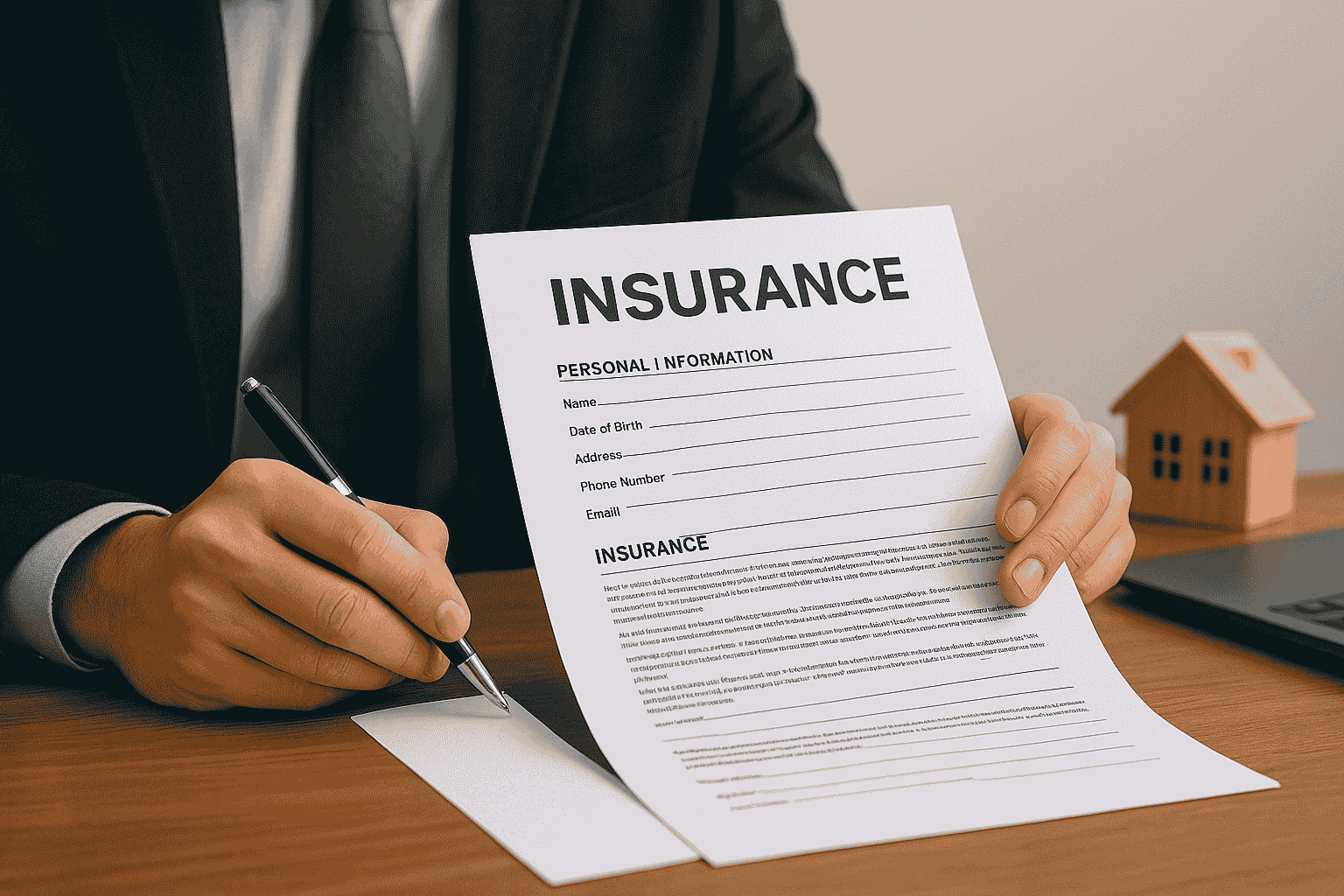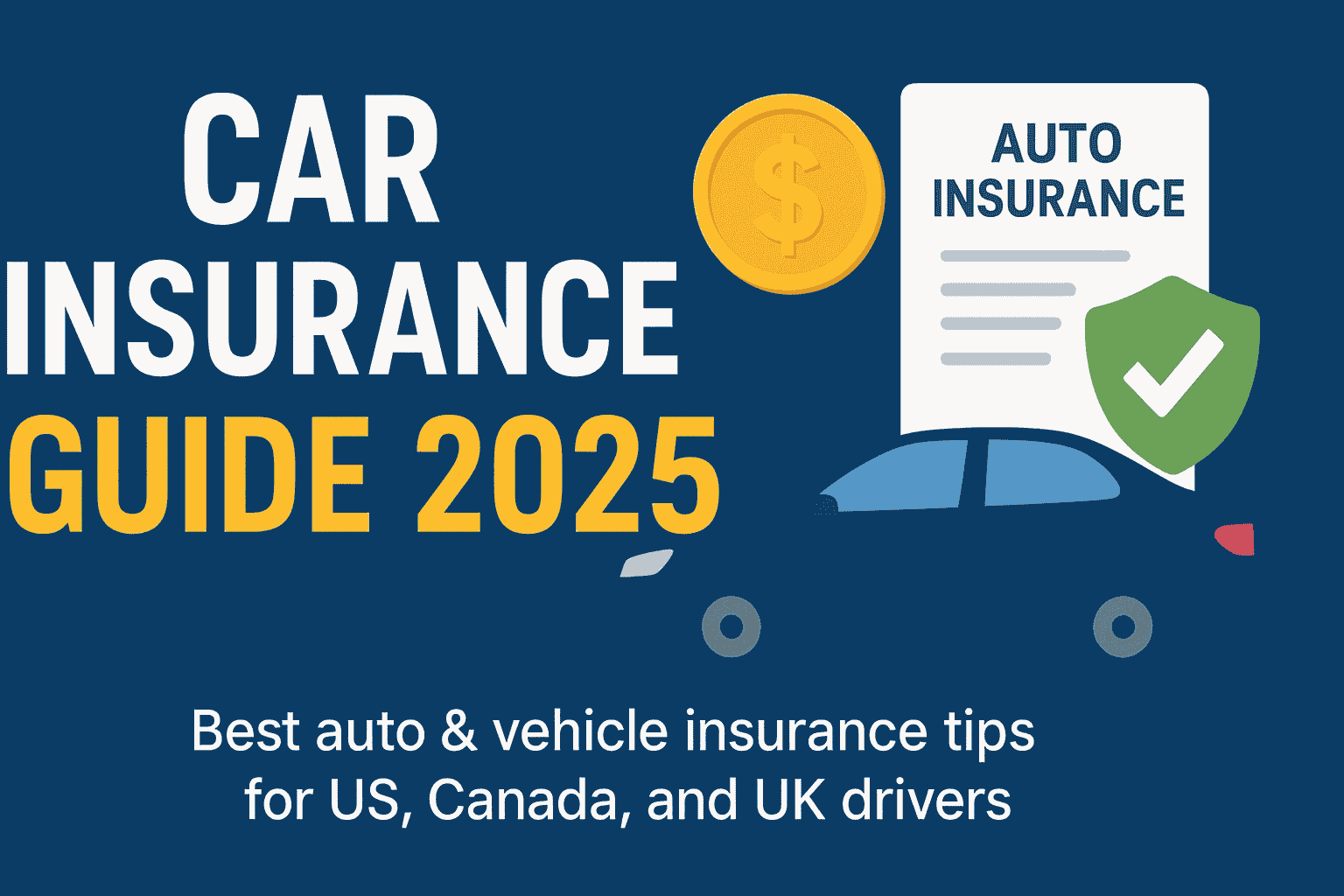Everything You Need to Know About Auto, Home & Vehicle Insurance
Why Insurance Licensing Exams Matter
If you’re planning to build a career in the insurance industry in the US, you’ll need to pass a state-specific license exam. Whether you’re aiming for the Texas Life and Health Insurance License Exam Prep, Florida Life and Health Insurance License Exam Prep, or California Property and Casualty Insurance License Exam Prep, preparation is the key to success.
Each state has its own requirements, but the goal is the same: to make sure insurance professionals understand the laws, products, and ethical responsibilities that protect consumers. From auto insurance and home insurance to vehicle insurance, agents must guide clients with accurate knowledge—and that starts with passing the exam.
In this complete guide, we’ll break down exam formats, study strategies, and FAQs for Texas, Florida, California, and New York insurance license exams.
Texas Life and Health Insurance License Exam Prep

The Texas Life and Health Insurance License Exam Prep is designed to test more than just definitions and memorized facts—it evaluates how well you understand the practical applications of life and health insurance policies in real-world scenarios. The exam covers essential areas such as life insurance policies, riders, and provisions, alongside key health insurance concepts like HMOs and PPOs. It also ensures that candidates are familiar with both federal and Texas-specific insurance laws, as well as the ethical responsibilities and licensing requirements that every agent must follow. This balance of technical knowledge and ethical practice prepares you to not only pass the exam but also serve clients effectively once licensed.
For example, you might encounter a question such as, “Which of the following is true about term life insurance?” While this may look simple, the goal is to test whether you understand the application of policies in real-life client situations, not just the definition. By studying state laws, mastering insurance basics, and practicing with scenario-based questions, you can build the confidence needed to excel. Preparing with this approach will help ensure you’re not only ready for the exam but also well-equipped for a long-term career in the Texas insurance industry

What the Texas Exam Covers
The Texas Life and Health Insurance License Exam tests your understanding of:
- Life insurance policies, riders, and provisions
- Health insurance basics, including HMOs and PPOs
- Federal and Texas state insurance laws
- Ethics, licensing requirements, and agent responsibilities
👉 Example: You might get a question like: “Which of the following is true about term life insurance?” The exam isn’t just about memorization; it’s about knowing how policies apply in real life.
Tips to Pass the Texas Insurance Exam
- Focus on state-specific laws. The Texas Department of Insurance often emphasizes local regulations.
- Use practice exams. These mimic the real test format and reduce anxiety.
- Study daily in short bursts. A 30-minute review every day beats cramming.
💡 Pro Tip: Many students also review auto insurance coverage in Texas, since questions may touch on broader insurance principles.

Florida Life and Health Insurance License Exam Prep
Florida stands out in the insurance industry because of its unique exposure to natural disasters, especially hurricanes. These risks have led to a heavily regulated insurance market, where rules and requirements are stricter than in many other states. For aspiring agents, this means home insurance and health insurance topics carry extra weight during preparation, as they are directly tied to the financial stability of Florida residents. Understanding how insurers manage hurricane-related claims and how these regulations impact consumers is crucial for passing the exam and serving clients effectively.
When preparing for the Florida Life and Health Insurance License Exam, candidates can expect a wide range of questions covering life insurance basics, health insurance products and taxation, Florida-specific regulations, and professional ethics. The exam is not just about memorizing policies but also about recognizing how Florida’s unique risks shape insurance practices. For example, you may see a practice question addressing hurricane deductibles in property policies, a concept that highlights the intersection of property, home, and health insurance in Florida.
Key Points to Remember:
- Florida’s exam emphasizes state-specific laws and natural disaster impacts, making home insurance and health insurance critical study areas.
- Expect scenario-based questions, especially related to hurricane deductibles and regulatory practices unique to Florida.
Florida’s insurance market is heavily regulated due to natural disasters like hurricanes. This makes home insurance and health insurance particularly important areas of study.
What to Expect on the Florida Exam
The Florida Life and Health Insurance Exam includes:
- Life insurance basics (whole, term, and universal life)
- Health insurance products and taxation
- Florida-specific regulations for insurers and agents
- Insurance ethics and professional conduct
👉 Example: A practice question might ask about Florida’s unique hurricane deductibles in property policies.

Florida Exam Prep Strategies
- Understand Florida’s property risks. Insurance laws often reflect hurricane-related claims.
- Use flashcards for memorization. Especially for terms like “coinsurance” or “subrogation.”
- Join a prep course. Many Florida schools offer live and online classes.
California Life and Health Insurance License Exam Prep
California is one of the largest insurance markets in the world, which makes the California Life and Health Insurance License Exam highly competitive. California is home to one of the largest and most competitive insurance markets in the world, which means the California Life and Health Insurance License Exam requires thorough preparation. Candidates must not only master general life and health insurance knowledge but also have a strong grasp of federal laws such as HIPAA and the Affordable Care Act, along with detailed California-specific regulations. Ethical practices also play a significant role, ensuring future agents can provide trustworthy service. For instance, you may face a question like, “Under California law, how soon must a claim be acknowledged by the insurer?”—testing both your legal knowledge and your ability to apply it in real scenarios.
Key Points to Note:
- The California exam places strong emphasis on state-specific insurance laws and regulations.
- Candidates should prepare for ethics and compliance-focused questions alongside technical insurance knowledge.
Exam Breakdown
- General life and health insurance knowledge
- Federal laws, like HIPAA and the Affordable Care Act
- California-specific regulations
- Ethical practices for insurance professionals
👉 Example: You may see a question like: “Under California law, how soon must a claim be acknowledged by the insurer?”
Success Tips
- Review California state insurance codes. These are heavily tested.
- Practice time management. The exam is timed, and pacing is key.
- Use study guides that align with California rules. Don’t rely only on generic material.
California Property and Casualty Insurance License Exam Prep
The California Property and Casualty (P&C) Exam is essential for anyone who wants to build a career selling auto insurance, home insurance, or vehicle insurance in the state. Since California has one of the most diverse and complex insurance markets in the US, passing this exam proves that you understand how to navigate property risks, liability concerns, and state-specific regulations. From homeowners’ claims after wildfires to liability disputes in auto accidents, the exam ensures you’re ready to handle real-world scenarios while protecting consumers.
The exam itself covers a broad range of topics, including property insurance basics like homeowners, renters, and commercial property coverage, along with casualty insurance areas such as auto, liability, and workers’ compensation. Candidates are also tested on California insurance laws, fair claims practices, policy structures, and underwriting principles. For example, you may be asked about Proposition 103, which regulates insurance rates across the state. To succeed, you must not only memorize facts but also understand how laws and policies work together in practice.
Key Points to Remember:
- California’s P&C exam emphasizes unique state laws, especially auto insurance liability limits and rate regulations.
- Using real-life scenarios, like wildfire damage or liability cases, helps connect theory to practice and makes studying more effective.
If you want to sell auto insurance, home insurance, or vehicle insurance in California, you’ll need to pass the Property and Casualty (P&C) exam.
What It Covers
- Property insurance basics (home, renters, commercial property)
- Casualty insurance (auto, liability, workers’ comp)
- California insurance laws and fair claims practices
- Policy structure and underwriting principles
👉 Example: A sample question might ask about California’s Proposition 103, which regulates insurance rates.
Tips for Passing
- Focus on auto insurance laws. California has unique regulations on liability limits.
- Use real-life examples. Link policies to events like wildfire damage (property insurance).
- Take mock exams. They’re the best way to simulate real conditions.
New York Property and Casualty Insurance License Exam Prep
New York is known for having some of the strictest insurance regulations in the US, which makes the New York Property and Casualty Insurance Exam both challenging and highly rewarding for future insurance professionals. The exam ensures candidates are well-prepared to handle the complexities of New York’s insurance market, where consumer protection and compliance are taken very seriously. This means you’ll need more than just a surface-level understanding—you must be ready to apply knowledge of property, casualty, and liability insurance to real-world situations, particularly within New York’s unique regulatory framework.
The exam tests your knowledge in several areas, including property insurance (homeowners, renters, and commercial policies), casualty insurance (auto, liability, and workers’ comp), New York state-specific regulations, and professional ethics. One key example is no-fault auto insurance, which is unique to New York and often appears on the test. To prepare effectively, you should focus on mastering the state’s auto insurance laws, understanding the fundamentals of property policies, and practicing with timed mock exams, as the test enforces strict time limits.
Key Points to Remember:
- The New York exam frequently tests no-fault auto insurance and state-specific regulations, making them critical study areas.
- Practicing with timed exams is essential, as managing the pace is just as important as knowing the content.
New York has some of the strictest insurance regulations in the US, making the New York Property and Casualty Insurance Exam challenging but rewarding.
What You’ll Be Tested On
- Property insurance: homeowners, renters, commercial
- Casualty insurance: liability, auto, and workers’ comp
- New York state insurance regulations
- Professional ethics and consumer protection
👉 Example: Expect questions on no-fault auto insurance, which is specific to New York.
How to Prepare
- Master New York’s auto insurance laws. They often appear on the test.
- Understand property insurance basics. Homeowner policies and endorsements are critical.
- Practice with timed exams. The NY exam is strict on timing.
How Insurance Exams Connect to Real-World Coverage
Insurance exams are designed to reflect the real-world responsibilities of agents, which is why so much emphasis is placed on auto insurance, home insurance, and vehicle insurance. These are the most common types of policies clients purchase, and they play a direct role in people’s financial security. By testing candidates on these areas, exams ensure that future agents not only understand the technical details but can also confidently explain coverage options and benefits to clients in everyday language. This builds trust and helps customers make informed decisions.
For instance, auto insurance protects drivers from financial loss after accidents, theft, or liability claims, while home insurance provides peace of mind against risks like fire, theft, and natural disasters. On the other hand, vehicle insurance expands beyond personal cars to cover motorcycles, RVs, trucks, and even commercial vans, making it vital for both individuals and businesses. Since these products form the foundation of the insurance industry, exams use them to evaluate whether a candidate is ready to handle client needs responsibly.
Key Points to Remember:
- Auto, home, and vehicle insurance are core policies, making them central to both the exams and an agent’s daily work.
- Understanding these coverages helps agents bridge the gap between technical knowledge and client-friendly explanations.
Why do these exams test on auto insurance, home insurance, and vehicle insurance? Because as an insurance agent, these are the policies you’ll most often sell.
- Auto Insurance → Protects against accidents, theft, and liability.
- Home Insurance → Safeguards homes from fire, theft, or natural disasters.
- Vehicle Insurance → Includes motorcycles, trucks, RVs, and commercial vans.
Agents must know how to explain these coverages to clients clearly, which is why exams emphasize them.
Study Strategies That Work Across All States
- Create a study schedule. Break down topics into daily goals.
- Use online practice exams. These mimic the test and highlight weak areas.
- Focus on state-specific content. Don’t ignore unique laws in Texas, Florida, California, or New York.
- Join study groups. Learning with peers boosts retention.
- Stay consistent. Small daily sessions beat last-minute cramming.
FAQs:
Q1: How do I pass the Texas life and health insurance exam?
Study state-specific laws, use practice exams, and focus on life and health policy basics.
Q2: What is on the Florida life and health insurance license exam?
It covers life and health insurance products, Florida regulations, ethics, and federal laws.
Q3: Is the California property and casualty insurance exam hard?
Yes, it’s challenging, but with practice tests, study guides, and state-focused prep, you can pass.
Q4: What does the New York property and casualty insurance exam cover?
It tests property, casualty, and liability insurance along with strict New York regulations.
Q: What is the best study guide for the Texas Life and Health Insurance License Exam Prep?
Kaplan and ExamFX are top-rated for Texas-specific insurance prep.
Q: Do I need home insurance knowledge for the Florida exam?
Yes, because property risks like hurricanes are tied to both health and home insurance in Florida.
Q: How does auto insurance factor into the California property and casualty exam?
It’s a major portion since California requires strict liability coverage for drivers.
Q: Is vehicle insurance covered in the New York exam?
Yes, especially no-fault auto insurance, which is unique to New York.
Conclusion: Your Path to a Successful Insurance Career
Whether you’re preparing for the Texas Life and Health Insurance License Exam, the Florida Life and Health Insurance License Exam, or the California and New York Property and Casualty Insurance License Exams, the strategy is the same: consistent study, practice exams, and focus on state-specific laws.
Insurance isn’t just about passing a test—it’s about protecting people. From auto insurance that keeps drivers safe, to home insurance that safeguards families, and vehicle insurance that covers motorcycles, trucks, and RVs, your knowledge as an agent can make a real difference.
👉 The exam is just the first step. With the right preparation, you can not only pass but thrive in the insurance industry.




